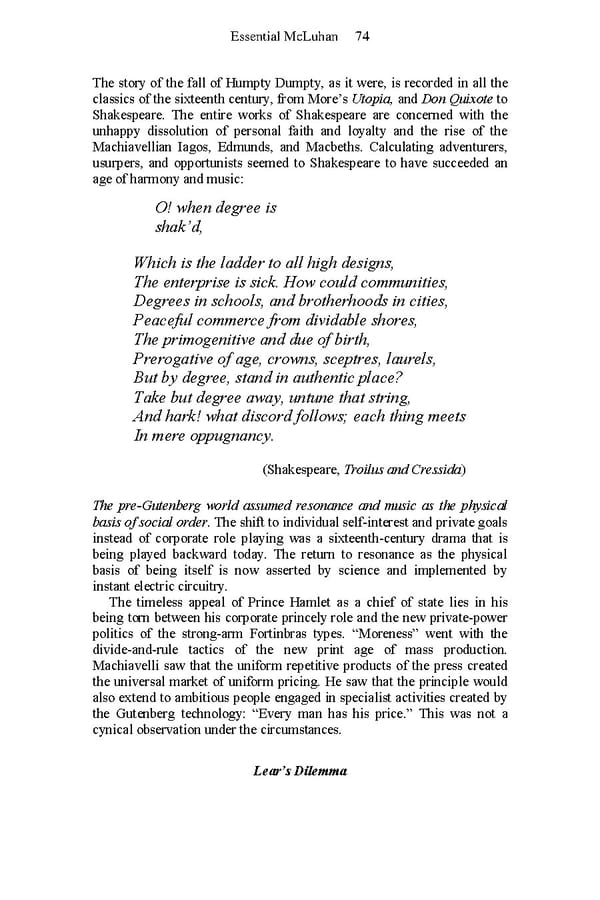Essential McLuhan 74 The story of the fall of Humpty Dumpty, as it were, is recorded in all the classics of the sixteenth century, from More’s Utopia, and Don Quixote to Shakespeare. The entire works of Shakespeare are concerned with the unhappy dissolution of personal faith and loyalty and the rise of the Machiavellian Iagos, Edmunds, and Macbeths. Calculating adventurers, usurpers, and opportunists seemed to Shakespeare to have succeeded an age of harmony and music: O! when degree is shak’d, Which is the ladder to all high designs, The enterprise is sick. How could communities, Degrees in schools, and brotherhoods in cities, Peaceful commerce from dividable shores, The primogenitive and due of birth, Prerogative of age, crowns, sceptres, laurels, But by degree, stand in authentic place? Take but degree away, untune that string, And hark! what discord follows; each thing meets In mere oppugnancy. (Shakespeare, Troilus and Cressida) The pre-Gutenberg world assumed resonance and music as the physical basis of social order. The shift to individual self-interest and private goals instead of corporate role playing was a sixteenth-century drama that is being played backward today. The return to resonance as the physical basis of being itself is now asserted by science and implemented by instant electric circuitry. The timeless appeal of Prince Hamlet as a chief of state lies in his being torn between his corporate princely role and the new private-power politics of the strong-arm Fortinbras types. “Moreness” went with the divide-and-rule tactics of the new print age of mass production. Machiavelli saw that the uniform repetitive products of the press created the universal market of uniform pricing. He saw that the principle would also extend to ambitious people engaged in specialist activities created by the Gutenberg technology: “Every man has his price.” This was not a cynical observation under the circumstances. Lear’s Dilemma
 Essential McLuhan Page 80 Page 82
Essential McLuhan Page 80 Page 82